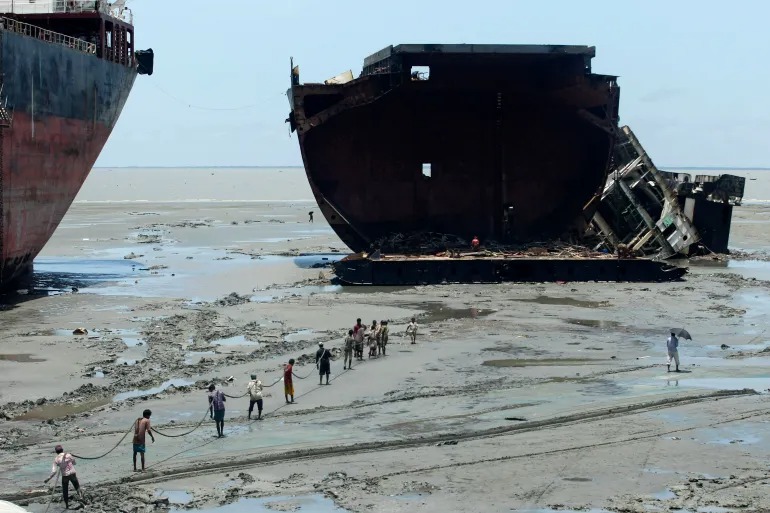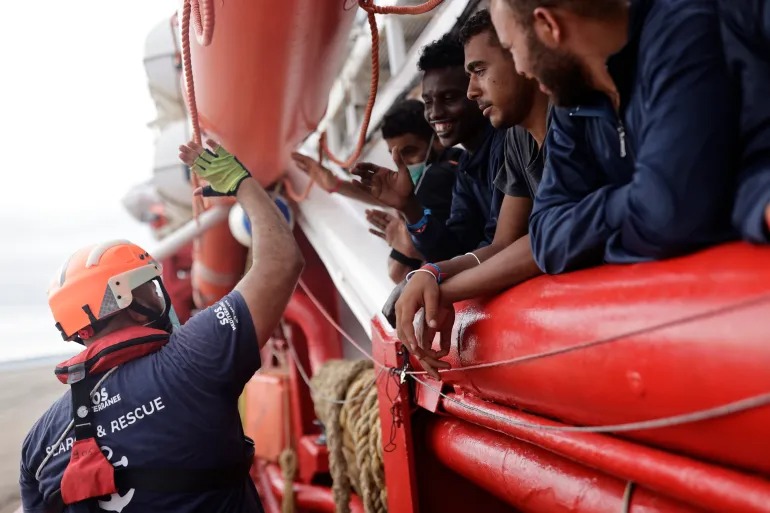Human Rights Watch (HRW) has exposed the perilous and environmentally destructive practices of European maritime companies, accusing them of discarding old ships on the shores of Bangladesh. These hazardous conditions have led to the loss of lives among the workers who painstakingly dismantle these ships. Bangladesh, particularly its southeastern Sitakunda beaches, has become a hub for shipbreaking, serving the nation’s construction industry’s insatiable demand for affordable steel. European companies have been implicated in sending a staggering 520 vessels to this site since 2020, where thousands of laborers toil without the protection of safety gear.
A Lethal Pursuit of Profits
European firms are under scrutiny for their profit-driven approach that disregards the well-being of Bangladeshi laborers and the environment. HRW researcher Julia Bleckner vehemently condemned this exploitative practice, stating, “Companies scrapping ships in Bangladesh’s dangerous and polluting yards are making a profit at the expense of Bangladeshi lives and the environment.” She further emphasized the urgent need for shipping companies to abandon the use of international regulation loopholes and take responsibility for the safe and responsible disposal of their waste.
Workers’ Disturbing Testimonies
Shocking testimonies from shipbreaking workers paint a grim picture of their daily struggles. These laborers resort to using socks as makeshift gloves to shield their hands from searing molten steel. To combat toxic fumes, they cover their mouths with shirts, and, shockingly, some even handle chunks of steel barefoot. The report by HRW, in collaboration with the Belgian-based NGO Shipbreaking Platform, reveals a litany of injuries sustained by these workers, including falling debris, being trapped inside blazing ships, and explosions from pipes.
The Grim Toll and Ongoing Efforts
The toll on human lives is alarming, with at least 62 workers losing their lives due to accidents in Sitakunda’s shipbreaking yards since 2019, according to Bangladeshi environmental group Young Power in Social Action. Recent incidents, including two separate deaths last week due to falls from partially dismantled ships, underscore the urgency of the situation.
While the Bangladesh Ship Breakers Association (BSBA) claims to be making strides in enhancing safety ahead of a new international convention set to take effect in 2025, concerns persist. BSBA President Mohammad Abu Taher asserted, “We are turning our shipbreaking yards into green yards even though it is expensive. We supply protective equipment to workers.” However, Fazlul Kabir Mintu, coordinator for the Danish-funded Occupational Safety and Security Information Center, has raised questions about the efficacy of these measures. Mintu alleges that yard owners wield excessive influence in local politics, creating a climate of impunity that neglects worker safety in numerous yards.
Furthermore, the presence of asbestos in many ships adds a grave health risk for workers. Repon Chowdhury, executive director of the OSHE Foundation charity, disclosed that laborers are forced to handle asbestos with their bare hands. Shockingly, out of 110 shipbreaking workers studied for exposure to this toxic substance, 33 tested positive. This has resulted in severe lung damage for all 33 victims, with three already succumbing to the effects while others continue to endure misery.
















